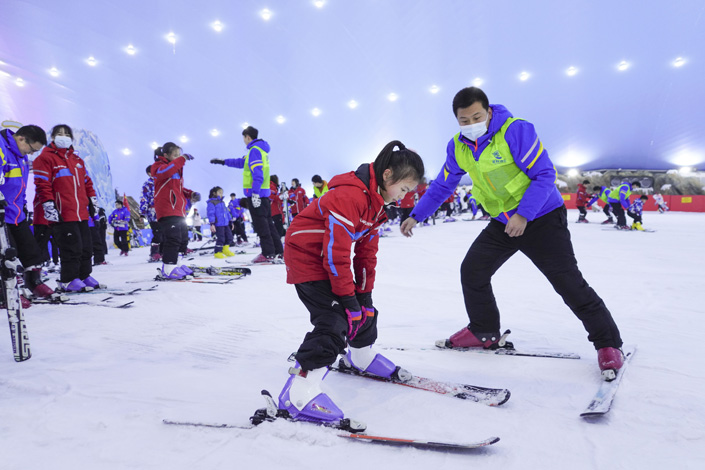
What will be the legacy of the Winter Olympics? One answer can be found in the numbers.
When the Chinese government said that the long-term goal of hosting the Winter Olympics was to promote winter sports in China, it attached a specific number — getting 300 million Chinese people involved.
The goal might have been reached already. As of October 2021, the number of participants in winter sports nationwide had reached 346 million according to a survey conducted by the National Bureau of Statistics commissioned by the General Administration of Sport of China. Also, another goal — Team China participating in all 109 events of the winter games — has also been realized.
So what do these numbers mean? In short, the world map of winter sports has changed, especially when it comes to snow.
Let us look at the number of athletes participating in the Sochi Olympic Winter Games in 2018. In alpine skiing, the number of Olympians from Italy, France, Switzerland, the U.S. and Austria totaled 101, a figure double that of athletes from all the non-European and American countries and regions put together. In cross-country skiing, the combined number of Norwegian and German athletes was equal to the number of athletes from all non-European and American countries and regions put together. In freestyle skiing, the U.S. delegation added up to roughly the sum of all the Asian athletes. In snowboarding, more Swiss athletes took to the slopes than Asian and South American athletes combined.

The numbers tell us that with the exception of freestyle skiing and freestyle snowboarding, Asian athletes seldom make their presence known in snow sports. The fact that China has made full use of its entry quota for these Winter Games indicates the changes that have come as a result of the country’s vision of getting 300 million people involved in winter sports. The medium-and long-term impact of these changes may completely change the world landscape of winter sports. Whether in the athlete quota for big events such as the Winter Olympic Games and the World Championships, or in intellectual proeprty creation for related events, for instance the rise of an “Asian season” in skiing, the Beijing Winter Olympics leaves an invaluable legacy for winter sports in China and the world.
In fact, the legacy of the Games is threefold.
The first is the environmental legacy represented by Chinese venue clusters, the Olympic Village and the bluer skies. This includes supporting infrastructure, such as the Beijing–Zhangjiakou Railway and architecture symbols and environments that evoke good memories.
The second legacy is cultural heritage characterized by the magnificent opening ceremony and the Games emblem. It is the image a city or country displays to the world, represented by the “Chinese seal” and “you and me”, the emblem and theme song of the Beijing 2008 Summer Olympics. This time, “Bing Dwen Dwen” and “Shuey Rhon Rhon,” the mascots of the Winter Games and Paralympics, as well as the theme song, torch relay, Olympic flame lighting and the spectacular opening ceremony, were broadcast, watched and will be remembered.

The third is the legacy created by the athletes, marked by high-level competition and new events. In Beijing 2008, Michael Phelps’s eight gold medals that made him the athlete with the most Olympic medals of all time, was one of many reasons why people remember the games. Beijing 2022 will create its own legacy — the breakthroughs of the Chinese delegation, the debuts of some Asian and African athletes, including Saudi Arabian skier Fayik Abdi, new events such as the mixed team short track relay and freestyle skiing mixed team aerials, and much more.
These legacies will bring China into a new era of the Winter Olympic Games. And after two years of Covid-19, the games are no less than a manifestation of human solidarity, just as the motto “together for a shared future” shows.
Yang Wang is a sports commentator.
The views and opinions expressed in this opinion section are those of the authors and do not necessarily reflect the editorial positions of Caixin Media.
If you would like to write an opinion for Caixin Global, please send your ideas or finished opinions to our email: opinionen@caixin.com
Contact editor Heather Mowbray (heathermowbray@caixin.com)
Get our weekly free Must-Read newsletter.







